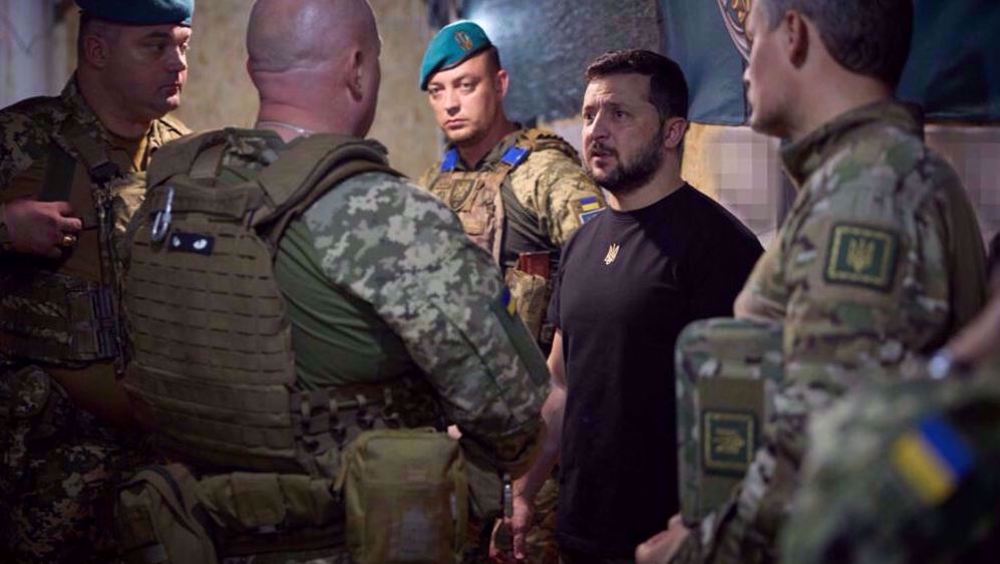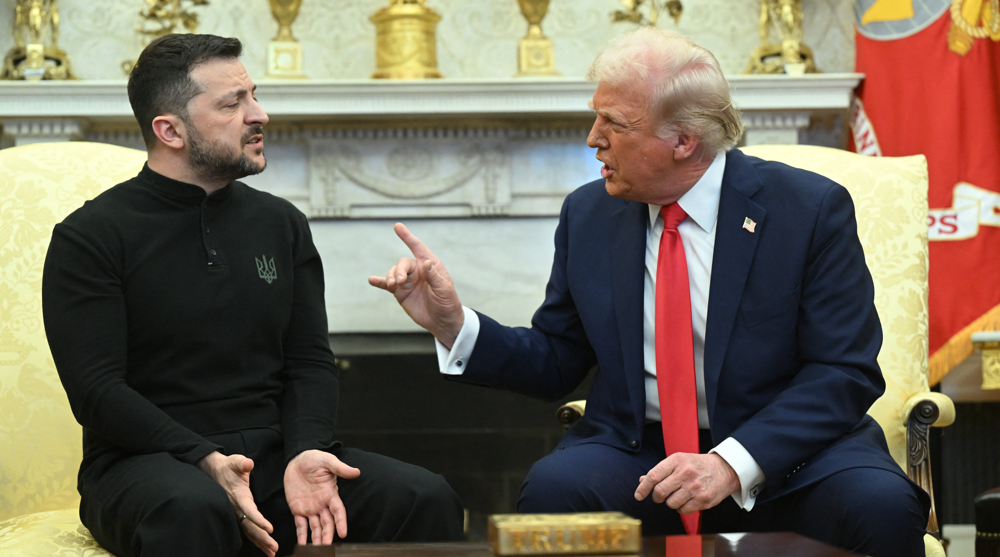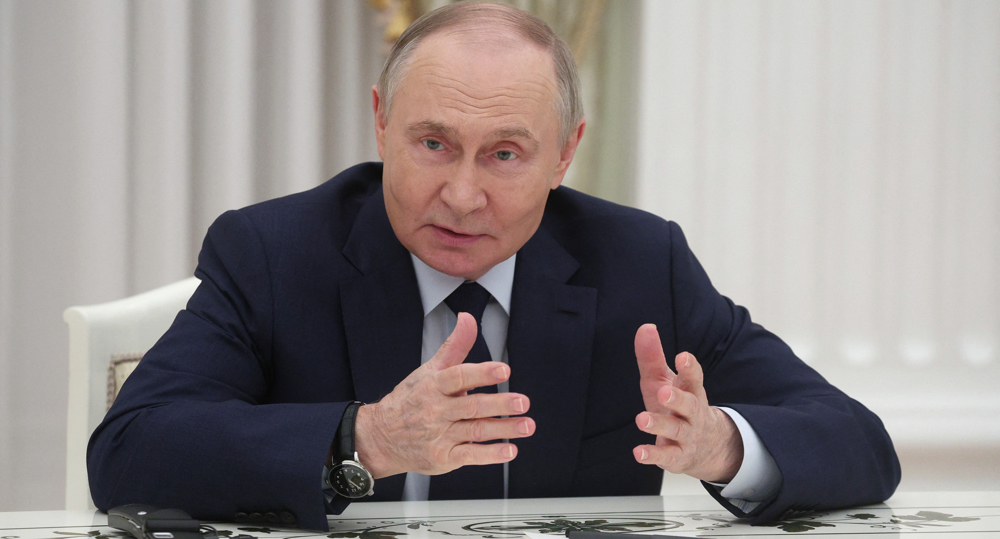Putin warns of tough Russia response to insolent US sanctions
Russian President Vladimir Putin has deplored a new round of US sanctions on his country, saying Moscow will definitively respond to the embargos if they are implemented.
“It's impossible to endlessly tolerate this kind of insolence towards our country,” Putin said on Thursday, referring to a recent vote in the US House of Representatives, where lawmakers endorsed an anti-Russia sanctions bill.
Putin, who was speaking at a joint press conference with Finnish President Sauli Niinisto in Savonlinna, said Russia’s patience with the US was waning as Washington was continuing to impose back-to-back sanctions on Moscow.

He said Moscow would definitively respond to the new US measures, adding that the size and scale of a possible response would depend on how Washington would decide to go on with the sanctions, which should be ratified in the Senate and signed by US President Donald Trump before it becomes law.
“We are behaving in a very restrained and patient way, but at some moment we will need to respond,” Putin said, adding, "When the response will be and what it will be -- that we will see."
Russia has been under a series of US sanctions since a crisis began in Ukraine in 2014. The new measures, however, come after Russia was accused of interfering in the US presidential election last year. Moscow denies any involvement in both cases. Officials in Moscow say new US bans on Russia would harm the interests of both nations.
In his remarks, Putin said investigations into alleged collusion between Russian officials and Trump’s campaign aides in last year’s elections were a sign of "a rise in anti-Russian hysteria" in the US. He called the case all but a “battle between President Trump and his political opponents,” adding that "Russian-US relations are being sacrificed to resolve questions of domestic politics.”
Elsewhere in his remarks, Putin said warmer ties between Washington and Moscow would help the two sides achieve better results in the “fight with terrorism,” adding that if the two act in agreement, they “could solve very acute problems much more effectively.”

Ukraine peace talks downgraded in London as Kiev rebuffs Trump’s proposal

US plan requires Ukraine to give 20% of territory to Russia: Report

Russia's President Putin ratifies bill for strategic partnership with Iran
US military launches renewed strikes on various regions across Yemen
VIDEO | Paris protesters slam Israel’s war on Gaza
VIDEO | Press TV's news headlines
VIDEO | US issues ‘final offer’ to Kiev for peace with Moscow
VIDEO | Pakistan warns of war over water diversion as India vows retaliation against militancy
ICC rejects Israel’s request to cancel arrest warrants for Netanyahu
VIDEO | Starvation spreads as Gaza faces deepening famine
VIDEO | Fake anti-Muslim stories go viral once more











 This makes it easy to access the Press TV website
This makes it easy to access the Press TV website